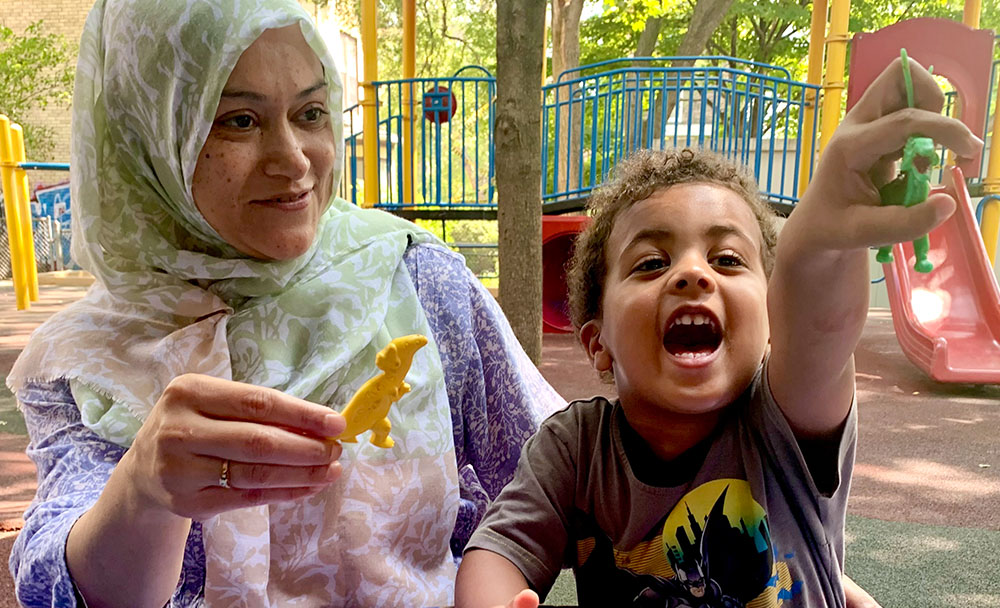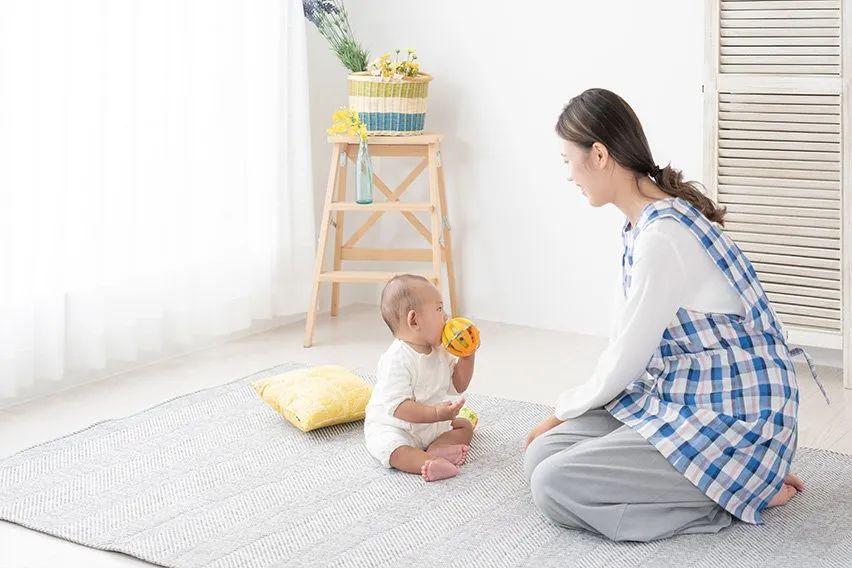Budget-friendly Toddler Daycare Near Me: Perfect Take Care Of Your Growing Kid
Budget-friendly Toddler Daycare Near Me: Perfect Take Care Of Your Growing Kid
Blog Article
Understanding the Significance of Day Care for Your Kid's Social Advancement and Discovering Experiences Through Involving Tasks
The importance of daycare in forming a young child's social growth and knowing can not be overstated, as it supplies an organized atmosphere filled with interesting tasks that are critical for very early growth. As we discover the diverse benefits of childcare, one must take into consideration just how these foundational experiences affect a kid's future social interactions and total development.

Benefits of Social Interaction
Social interaction plays a vital duty in the developing trajectory of kids, acting as a structure for crucial social abilities. Involving with peers allows young children to practice communication, learn to express their feelings, and create compassion. Via shared play and teamwork, they start to recognize social norms, such as taking turns and sharing, which are important elements of successful interpersonal connections.
Furthermore, social communications add to cognitive development. As kids interact with their peers, they improve their language abilities, increase their vocabulary, and boost their capability to express ideas and feelings. This exchange of ideas fosters important reasoning, as youngsters learn to work out, resolve problems, and browse problems.
Additionally, social communication promotes psychological guideline. Exposure to different social situations aids toddlers identify and manage their feelings, ultimately bring about better durability and adaptability. The capability to create relationships and attachments likewise boosts their sense of belonging and self-esteem, which are critical for total wellness.
Importance of Engaging Activities
Involving tasks are necessary for promoting a stimulating setting that enhances toddlers' social growth. These tasks not just captivate young kids's interest yet additionally promote active involvement, allowing them to discover their surroundings artistically. With play-based learning, toddlers establish important skills such as problem-solving, collaboration, and compassion, every one of which are important for constructing healthy and balanced partnerships with peers.
Getting involved in interesting activities, such as group video games, art jobs, and interactive storytelling, urges young children to reveal their concepts and sensations. This expression is essential for psychological knowledge and assists them comprehend the perspectives of others. Moreover, when toddlers participate in these tasks together, they discover to discuss duties, share resources, and collaborate, which are fundamental aspects of social communication.
Furthermore, a well-structured setting that includes varied and revitalizing activities aids in maintaining kids inspired and concentrated. This motivation fosters a love for learning and exploration, laying the structure for future academic experiences. Eventually, engaging tasks in day care settings are pivotal in shaping social abilities, preparing toddlers for effective communications beyond the classroom, and nurturing their overall development throughout these developmental years.
Developing Interaction Abilities
Efficient communication abilities are critical for toddlers as they browse their early social communications. In a daycare setting, youngsters are subjected to diverse social scenarios that urge spoken and non-verbal communication. Involving in discussions with peers and caretakers promotes language development, enabling young children to reveal their needs, ideas, and feelings a lot more efficiently.

Additionally, day care atmospheres offer chances for toddlers to observe and mimic communication designs of their adults and peers. This observational discovering is essential as kids detect social cues, tone, and body movement, which are crucial components of effective communication.
Fostering Independence and Self-confidence
As young children refine their interaction abilities, they at the same time start to explore their freedom and develop confidence in social settings (daycare for infants near me). Day care offers a structured atmosphere where children can take part in numerous tasks that encourage freedom. From picking their own tasks to joining group jobs, these experiences encourage young children to make choices and reveal themselves
In a daycare setup, kids are commonly presented with chances to address troubles separately, whether it's identifying how to share toys or fixing conflicts with peers. This cultivates crucial reasoning and advertises self-direction. In addition, caretakers support this development by giving positive support and assistance, aiding youngsters to navigate social interactions with self-confidence.

Group tasks, such as participating video games or joint art tasks, assist in synergy and teach kids the importance of interacting. With these interactions, youngsters learn to communicate their ideas and sensations, additionally enhancing their self-worth and social skills.
Ultimately, promoting self-reliance and confidence in childcare not only prepares kids for future social environments yet also lays the groundwork great post to read for a resistant mindset, furnishing them with essential life abilities as they remain to discover and expand.
Building Lifelong Knowing Foundations
A solid structure for lifelong discovering is critical for toddlers, as their early experiences form their attitudes towards education and curiosity. Daycare atmospheres play a crucial role in this developmental phase by giving organized opportunities for exploration and interaction. Involving tasks, such as team play, arts and crafts, and interactive narration, stimulate cognitive growth while urging social communication.
Through these experiences, kids learn necessary abilities such as problem-solving, communication, and teamwork. They are presented to the idea of discovering as a satisfying, collective process as opposed to a task, which cultivates a positive attitude in the direction of education and learning. Exposure to varied viewpoints and peer communications in day care setups improves emotional intelligence, promoting compassion and strength.
Caregivers and teachers likewise contribute dramatically to constructing this structure by modeling curiosity and enthusiasm for knowing. By encouraging inquiries and promoting conversations, they create an environment where youngsters feel secure to reveal themselves and check out new concepts. Eventually, the combination of encouraging connections and engaging tasks in day care setups lays the foundation for a lifelong love of learning, outfitting young children with the abilities and attitude required for future academic and individual success.
Verdict

The value of daycare in shaping a kid's social development and knowing can not be overemphasized, as it provides an organized setting filled up with appealing tasks that are crucial for very early development.Social interaction plays a vital function in the developing trajectory of toddlers, offering as a structure for essential social abilities. When young children involve in these activities with each other, they learn to negotiate duties, share sources, and work together, which are fundamental elements of social interaction.
Ultimately, engaging tasks in daycare setups are critical in shaping social skills, preparing kids for successful communications beyond the class, and nurturing their general development throughout these formative years.
Inevitably, the advantages of appealing tasks in day care settings play a considerable duty in preparing young children for future social interactions and obstacles. daycare for infants near me.
Report this page